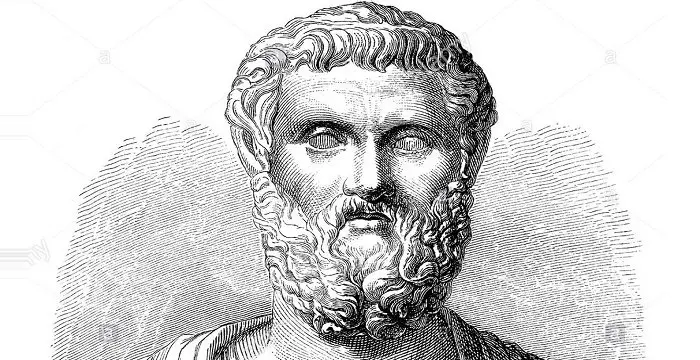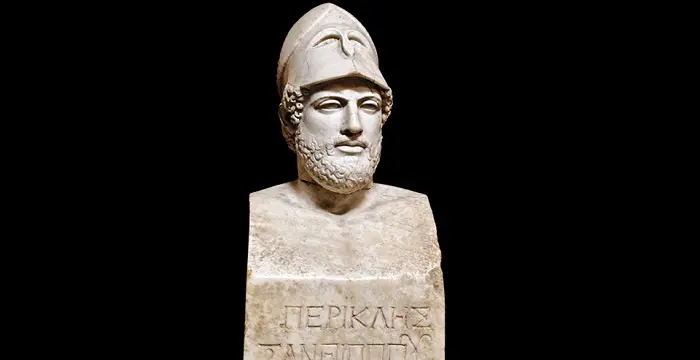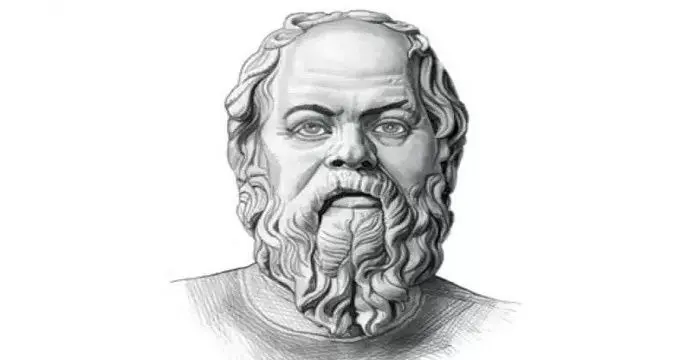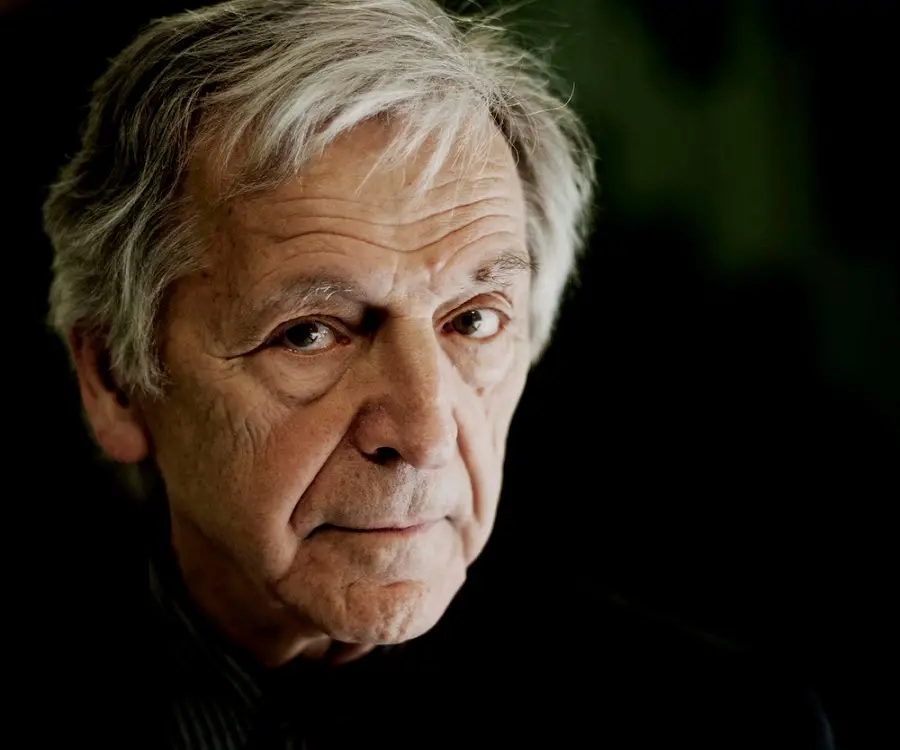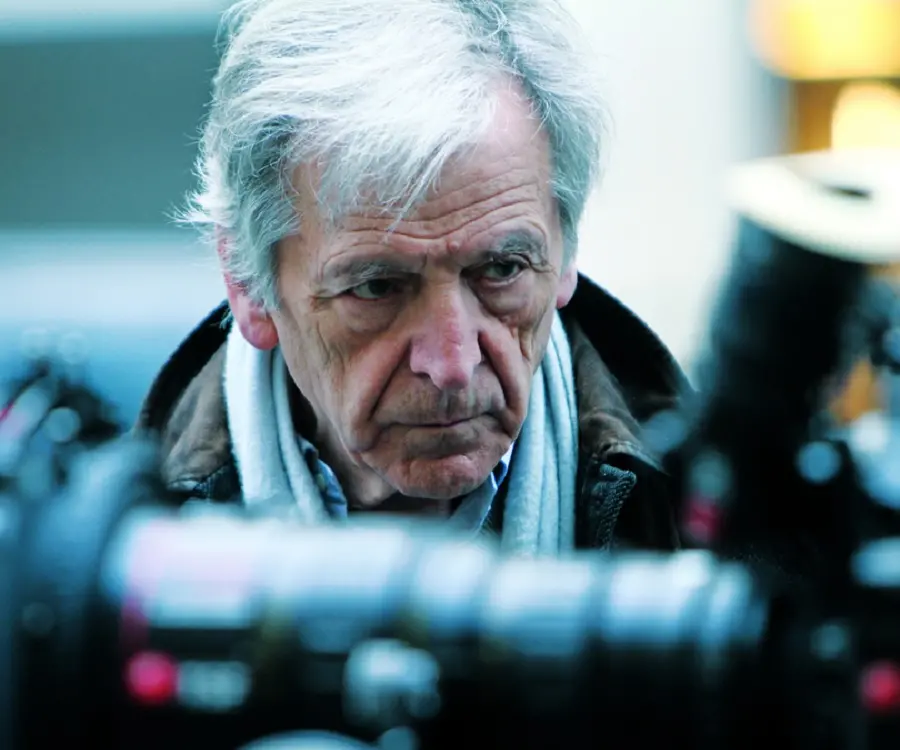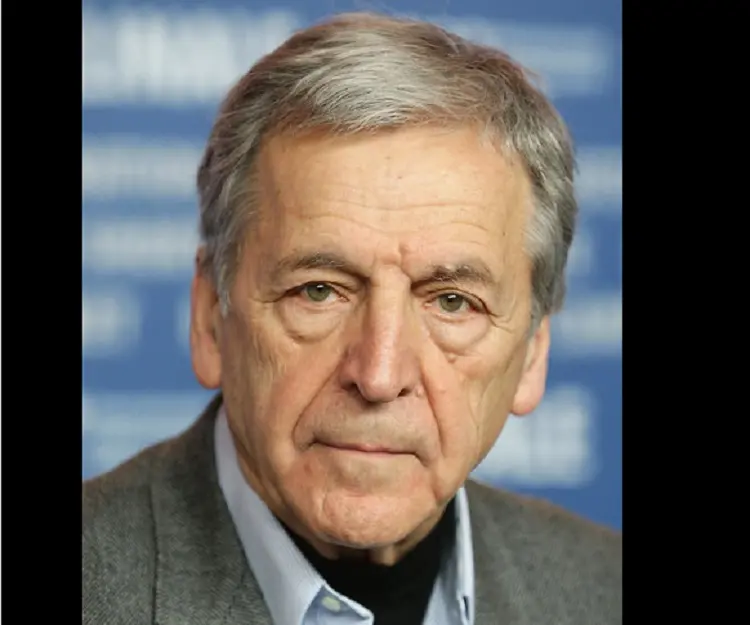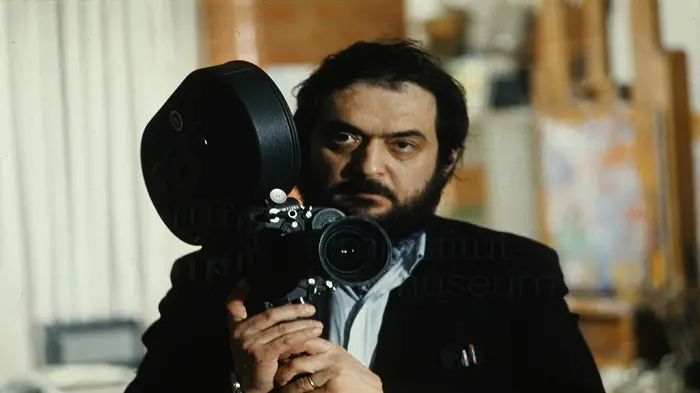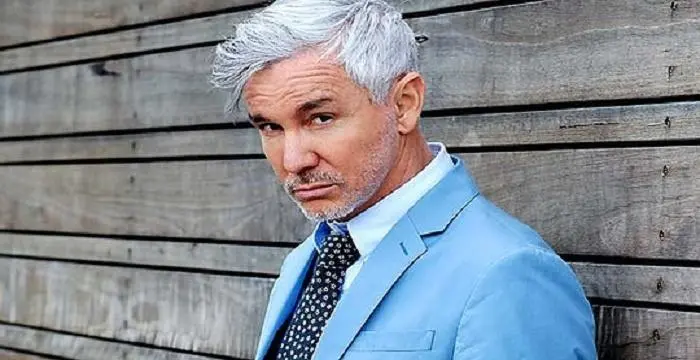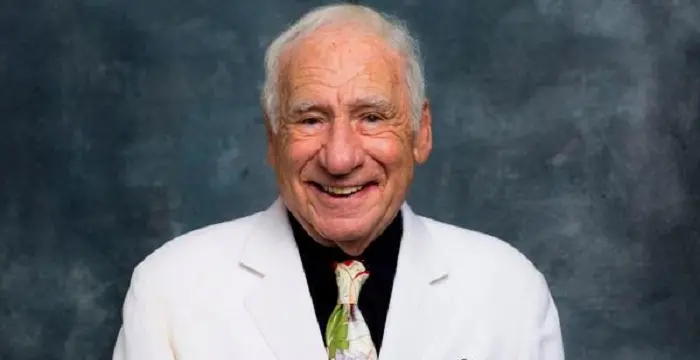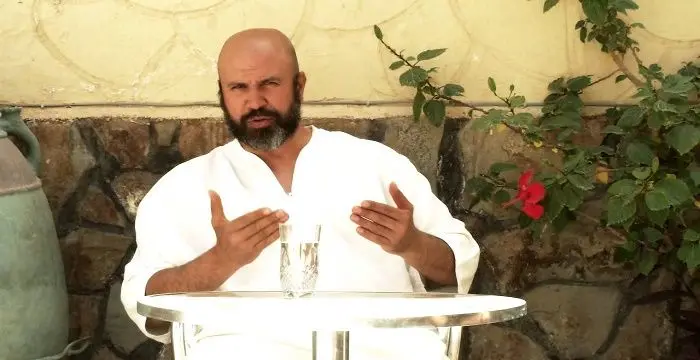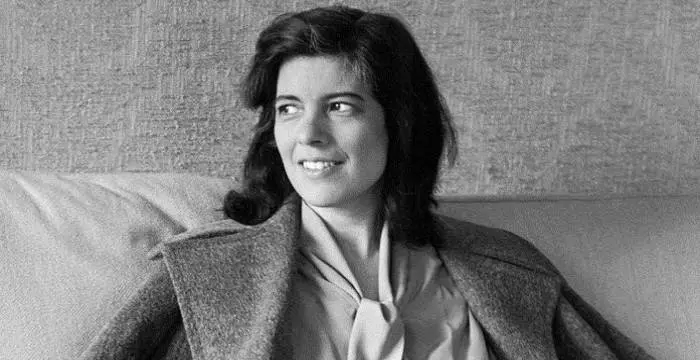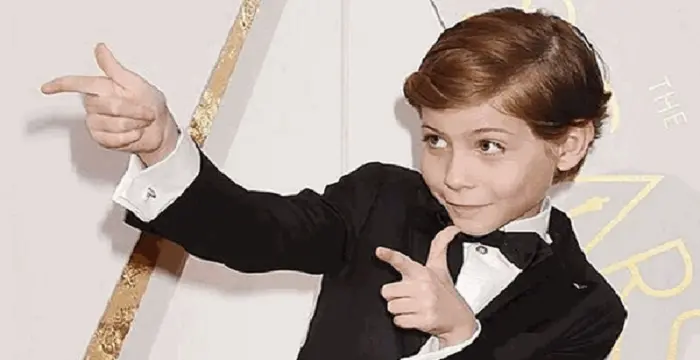Costa Gavras - Film Director, Life Achievements and Childhood
Costa Gavras's Personal Details
Costa-Gavras is a renowned Greek-French film director and producer who is known for making films with overt political themes
| Information | Detail |
|---|---|
| Birthday | February 12, 1933 |
| Nationality | French, Greek |
| Famous | Film & Theater Personalities, Directors, Film Director, Greek Men |
| Spouses | Michèle Ray-Gavras (m. 1968) |
| Known as | Konstantinos Gavras |
| Childrens | Alexandre Gavras, Julie Gavras, Romain Gavras |
| Birth Place | Iraia, Greece |
| Born Country | Greece |
| Gender | Male |
| Net Worth | $19 million as of February 8,2017 |
| Sun Sign | Aquarius |
| Born in | Iraia, Greece |
| Famous as | Film Director |
// Famous Greek Men
Solon
Solon was an Athenian lawmaker, poet and politician. He is considered as one of the ‘Seven Wise Men’ in Greek culture. This biography provides detailed information about his childhood, life, career, works, achievements and timeline.
Pericles
Pericles was an important Greek statesman, orator, patron of the arts, politician, and general of Athens who lived from 495–429 B.C. Check out this biography to know about his childhood, life, achievements, works & timeline.
Socrates
Socrates was one of the most influential Greek philosophers of the ancient era. Check out this biography to know about his childhood, family life, achievements and fun facts about him.
Costa Gavras's photo
Who is Costa Gavras?
Costa-Gavras is a renowned Greek-French film director and producer who is known for making films with overt political themes. During the World War II, his father, a tax official in Athens, worked for the left wing resistance movement and became marked as a communist. Later with the defeat of the communists in the civil war, he was jailed. It not only affected the family financially, but closed the door for higher studies for young Gavras. Consequently, he was forced to move to France, where he graduated from Institute for Advanced Cinematographic Studies. Paris. Thereafter, he started working as assistant to various reputed directors and had his directorial debut in mid-1960s with a French thriller film called ‘Compartiment tueurs’. However, his later films began to carry an overt political message; most significant of them being ‘Z’, ’État de Siège’, ‘Missing’, and ‘Hamma K’ etc. He also showed his prowess in directing comedy with ’État de Siège’. While most of his films have been made in French, lured by Hollywood in 1980s, he began making films in English as well. Today he is a naturalized French citizen and lives in Paris.
// Famous Film Director
Stanley Kubrick
Stanley Kubrick was a screenwriter and film director known for his movies like ‘The Clockwork Orange’ and ‘The Shining’. This biography of Stanley Kubrick provides detailed information about his childhood, life, achievements, works & timeline.
Baz Luhrmann
Baz Luhrmann is an Australian writer, filmmaker, and producer. Check out this biography to know about his birthday, childhood, family life, achievements and fun facts about him.
Mel Brooks
Known as the king of farces and comic parodies, Mel Brooks is a famous American film director, comedian, actor, producer and composer. This biography provides detailed information on his childhood, life, career, works, achievements & timeline.
Childhood & Early Life
Costa-Gavras was born as Konstantinos Gavras on 12 February 1933, in Loutra Iraias, then a village in the Peloponnese region of southern Greece, to Russian-born father and Greek mother. Senior Gavras, a tax official at Athens, was an anti-royalist and took part in the left wing resistance movement during the Nazi occupation.
After the war, as Greece came under the influence of the Western powers, he was marked as a communist. Later in 1949, with the defeat of the communists in the civil war, he not only lost his job, but was also jailed.
As a result of this, their economic condition deteriorated to such an extent that his mother started cleaning houses. Moreover, the arrest also meant that Costa Gavras would not get admission into any university in Greece.
Therefore, he decided to go abroad and to save money he began to take up odd jobs, which enabled him to have a glimpse into a society that he would not have otherwise known. For some days, he also danced in a Greek opera house, an experience which later came handy.
Initially, Gavras wanted to study film-making in the United States; but because of his father’s political background, he was denied a visa. So in 1951, he moved to Paris, where he enrolled at the University of Paris (Sorbonne).
Later in 1956, he entered L'Institut des hautes études cinématographiques (IDHEC; the Institute for Advanced Cinematographic Studies), where he studied film making. On passing out from there, he began apprenticing under renowned film makers like Yves Allégret, René Clair, René Clément, and Jacques Demy.
Career
In 1965, Costa Gavras made his directorial debut with a murder mystery film, titled ‘Compartiment tueurs’ (The Sleeping Car Murders). It was based on Sébastien Japrisot’s eponymous novel. The movie did reasonably well at the box office.
His next film, ‘Un homme de trop’ (Shock Troops) was based on the World War II. Released 5 April 1967, it is set in Central France and tells the story of French resistance. The film gained entry into the 5th Moscow International Film Festival, held at Moscow between 5 July and 10 July of the same year.
In 1969, his film ‘Z’ was released. It is an Algerian-French political thriller, based on the 1966 novel by Vassilis Vassilikos and presents fictionalized version of Greek politician Grigoris Lambrakis’s assassination and the military dictatorship that ruled the country at that time. Critics consider this movie as his finest work.
Next he made ‘L'aveu’ (The Confession). Released in April 1970, the film is based on the real-life story of the Czechoslovak communist leader, Artur London, who became a defendant in the Slánský trial and went through unbelievable torture at the hand of totalitarian leadership.
’État de siège’ (State of Siege), released in 1972, is another of his popular works. Many critics consider this to be his finest work after his 1969 film ‘Z’. The story is a fictionalized version of an authentic event in 1970 when U.S. Embassy official Dan Mitrione was kidnapped and killed in Uruguay. It ruffled many a feathers in the US.
His next film ‘Section spéciale’ (Special Section) was another of his prize winning works. Released in 1975, the story is based on a book by Hervé Villeré and is set in Vichy France during German occupation.
Thereafter, Gavras tried his hand in acting and enacted the character of Ramon in ‘Madam Rosa’, a 1977 film by Moshé Mizrahi. However, he soon went back to direction and in 1979, released his seventh film, ‘Clair de femme’.
His next movie ‘Missing’ was released in 1982. It is set in the period following American journalist Charles Horman's disappearance in Chili and opens with Gavras’ statement that the events of the film are true. Like ’État de Siège’, it also created a lot of controversy.
Following a lawsuit filed against Costa-Gavras and the distribution company for defamation, the movie ‘Missing’ had to be removed from the United States market. It could be released in the U.S. in 2006 after they won the case. During Augusto Pinochet's dictatorship, it was also banned in Chili.
In his next movie ‘Hanna K’ (1983), he tried to depict Israel-Palestine conflict from a neutral angle. While the protagonist is a Holocaust survivor residing in Israel, he also tried to bring out the story of the Palestinians, who lost their land and home. Unfortunately, the film made the Israel lobby uncomfortable and they made sure that the film did not run in the US.
While ‘Missing’ was made in English and Spanish, ‘Hanna K’ was made entirely in English. Thereafter, he made a French comedy film titled ‘Conseil de famille’ in 1986.
His next two films, ‘Betrayed’ (1988) and ‘Music Box’ (1989) were made in English. While the former was on the rise of a white-supremacist group in the U.S. the latter was about the trial of a Hungarian-American immigrant, accused of being a war criminal.
Subsequently, he made ‘The Little Apocalypse’ (1993), ‘Mad City’ (1997), ‘Amen’ (2002), ‘Le coupere’ (2005) and ‘Eden in the West’ (2009). While none of them did very well at the box office, ‘Mad City’ was a huge flop.
Made with a budget of $50 million, ‘Mad City’ earned only $10.5 million at the box office. However, ‘Le coupere’ and ‘Eden in the West’ were well received by the critics.
Gavras’ last film, ‘Le Capital’, opened at 2012 Toronto International Film Festival. Made in French, it talks about power struggle in international finance. Later it was shown at various other film festivals and was nominated for various prizes, but failed to win any.
Major Works
Costa Gavras is best known for his Algerian-French political thriller film ‘Z’. Made in 1969, it was a critical and commercial success. It was the fourth highest grossing film in France and the twelfth highest in the US. Moreover, it was the first film to receive Academy nomination in both Best Foreign Language Film and Best Picture categories.
Awards & Achievements
Gavras received many awards for his film ‘Z’. Among them, Canes Jury Prize (1969), New York Film Critics Circle Award (1969), Academy Award for Best Foreign Language Film (1970), Golden Globe Award for Best Foreign Language Film (1970) were most significant.
For ‘Missing’ too he received number of awards; most significant of them were: Palme d'Or (Golden Palm) at the 1982 Cannes Film Festival, Academy Award for Best Writing (Screenplay Based on Material from Another Medium, 1983), and the BAFTA Award for Best Screenplay (1983).
He also received BAFTA Awards for ‘State of Siege’ (1974) and Golden Bear Award for ‘Music Box’ (1990).
In 2013, he has received an honorary doctorate from the Film School of the Aristotle University.
Personal Life & Legacy
Costa Gavras married Michele Ray-Gavras in 1968. The couple has three children; two sons named Romain and Alexandre Gavras and a daughter named Julie Gavras. Among them Romain and Julie have followed their father’s footsteps and are film makers.
Though born Greek, he is now a naturalized French citizen and lives in the Latin Quarter near Boulevard Saint-Michel in Paris.
// Famous Directors
Kevin Costner
Kevin Costner is an American actor, director and singer who is best known for his portrayal of rugged individuals with complex emotions. This biography provides detailed information about his childhood, life, achievements, works & timeline
Michel Qissi
Michel Qissi is a Moroccan-Belgian actor known for his role in the martial arts flick ‘Kickboxer.’ Check out this biography to know about his childhood, family life, achievements and fun facts about him.
Susan Sontag
Susan Sontag is an American critical essayist, cultural analyst, novelist, political activist, filmmaker and playwright of international repute. Read on to find out more about her childhood, career, profile and timeline.
Costa Gavras's awards
| Year | Name | Award |
|---|---|---|
Other | ||
| 1990 | Golden Bear- Music Box | |
| 1983 | Academy Award for Best Writing Adapted Screenplay - Missing | |
| 1975 | Cannes Best Director Award - Special Section | |
| 1972 | Louis Delluc Prize - State of Siege | |
| 2003 | César Award for Best Writing - Amen | |
| 1970 | Edgar Award for Best Motion Picture Screenplay | |
| 1966 | National Board of Review Award for Best Foreign Language Film - The Sleeping Car Murders | |
| 1969 | New York Film Critics Circle Award for Best Director | |
| 1982 | London Film Critics' Circle Award for Director of the Year - Missing | |
| 1982 | London Film Critics' Circle Award for Film of the Year - Missing | |
| 1982 | London Film Critics Circle Award for Screenwriter of the Year - Missing | |
| 1983 | Writers Guild of America Award for Best Adapted Drama - Missing | |
| 1974 | BAFTA United Nations Award - State of Siege | |
| 2014 | Nova Honorary Award | |
| 1983 | BAFTA Award for Best Screenplay - Missing | |
| 0 | 1982 - Palme d'Or - Missing | |
| 0 | 1970 - Academy Award for Best Foreign Language Film | |
| 0 | 1969 - Cannes Jury Prize | |
Costa Gavras biography timelines
- // 12th Feb 1933Costa-Gavras was born as Konstantinos Gavras on 12 February 1933, in Loutra Iraias, then a village in the Peloponnese region of southern Greece, to Russian-born father and Greek mother. Senior Gavras, a tax official at Athens, was an anti-royalist and took part in the left wing resistance movement during the Nazi occupation.
- // 1949After the war, as Greece came under the influence of the Western powers, he was marked as a communist. Later in 1949, with the defeat of the communists in the civil war, he not only lost his job, but was also jailed.
- // 1951Initially, Gavras wanted to study film-making in the United States; but because of his father’s political background, he was denied a visa. So in 1951, he moved to Paris, where he enrolled at the University of Paris (Sorbonne).
- // 1956Later in 1956, he entered L'Institut des hautes études cinématographiques (IDHEC; the Institute for Advanced Cinematographic Studies), where he studied film making. On passing out from there, he began apprenticing under renowned film makers like Yves Allégret, René Clair, René Clément, and Jacques Demy.
- // 1965In 1965, Costa Gavras made his directorial debut with a murder mystery film, titled ‘Compartiment tueurs’ (The Sleeping Car Murders). It was based on Sébastien Japrisot’s eponymous novel. The movie did reasonably well at the box office.
- // 1966 To 1969In 1969, his film ‘Z’ was released. It is an Algerian-French political thriller, based on the 1966 novel by Vassilis Vassilikos and presents fictionalized version of Greek politician Grigoris Lambrakis’s assassination and the military dictatorship that ruled the country at that time. Critics consider this movie as his finest work.
- // 5th Apr 1967His next film, ‘Un homme de trop’ (Shock Troops) was based on the World War II. Released 5 April 1967, it is set in Central France and tells the story of French resistance. The film gained entry into the 5th Moscow International Film Festival, held at Moscow between 5 July and 10 July of the same year.
- // 1968Costa Gavras married Michele Ray-Gavras in 1968. The couple has three children; two sons named Romain and Alexandre Gavras and a daughter named Julie Gavras. Among them Romain and Julie have followed their father’s footsteps and are film makers.
- // 1969Costa Gavras is best known for his Algerian-French political thriller film ‘Z’. Made in 1969, it was a critical and commercial success. It was the fourth highest grossing film in France and the twelfth highest in the US. Moreover, it was the first film to receive Academy nomination in both Best Foreign Language Film and Best Picture categories.
- // Apr 1970Next he made ‘L'aveu’ (The Confession). Released in April 1970, the film is based on the real-life story of the Czechoslovak communist leader, Artur London, who became a defendant in the Slánský trial and went through unbelievable torture at the hand of totalitarian leadership.
- // 1974 To 1990He also received BAFTA Awards for ‘State of Siege’ (1974) and Golden Bear Award for ‘Music Box’ (1990).
- // 1975His next film ‘Section spéciale’ (Special Section) was another of his prize winning works. Released in 1975, the story is based on a book by Hervé Villeré and is set in Vichy France during German occupation.
- // 1977 To 1979Thereafter, Gavras tried his hand in acting and enacted the character of Ramon in ‘Madam Rosa’, a 1977 film by Moshé Mizrahi. However, he soon went back to direction and in 1979, released his seventh film, ‘Clair de femme’.
- // 1982His next movie ‘Missing’ was released in 1982. It is set in the period following American journalist Charles Horman's disappearance in Chili and opens with Gavras’ statement that the events of the film are true. Like ’État de Siège’, it also created a lot of controversy.
- // 1983In his next movie ‘Hanna K’ (1983), he tried to depict Israel-Palestine conflict from a neutral angle. While the protagonist is a Holocaust survivor residing in Israel, he also tried to bring out the story of the Palestinians, who lost their land and home. Unfortunately, the film made the Israel lobby uncomfortable and they made sure that the film did not run in the US.
- // 1986While ‘Missing’ was made in English and Spanish, ‘Hanna K’ was made entirely in English. Thereafter, he made a French comedy film titled ‘Conseil de famille’ in 1986.
- // 1988 To 1989His next two films, ‘Betrayed’ (1988) and ‘Music Box’ (1989) were made in English. While the former was on the rise of a white-supremacist group in the U.S. the latter was about the trial of a Hungarian-American immigrant, accused of being a war criminal.
- // 2006Following a lawsuit filed against Costa-Gavras and the distribution company for defamation, the movie ‘Missing’ had to be removed from the United States market. It could be released in the U.S. in 2006 after they won the case. During Augusto Pinochet's dictatorship, it was also banned in Chili.
- // 2012Gavras’ last film, ‘Le Capital’, opened at 2012 Toronto International Film Festival. Made in French, it talks about power struggle in international finance. Later it was shown at various other film festivals and was nominated for various prizes, but failed to win any.
- // 2013In 2013, he has received an honorary doctorate from the Film School of the Aristotle University.
// Famous Film & Theater Personalities
Jacob Elordi
Jacob Elordi is an Australian actor. Let’s take a look at his childhood, family, personal life, career, etc.
Wentworth Miller
Wentworth Miller is an American actor and screenwriter who achieved recognition for his role in the TV series ‘Prison Break’.
Skai Jackson
Skai Jackson is an American child actress with huge fan following. Find more about her family & personal life, relationships, facts and more.
Shemar Moore
Shemar Moore is a model turned actor best known for his role in the television series ‘The Young and the Restless’. This biography of Shemar Moore provides detailed information about his childhood, life, achievements, works & timeline.
Riele Downs
Riele Downs is a Canadian-American actress & Musical.ly star. Let’s take a look at her family and personal life including age, birthday, net worth, boyfriends and fun facts.
Jacob Tremblay
Jacob Tremblay is a Canadian child actor. Let’s have a look at his family & personal life including age, birthday, relationships, net worth and fun facts.
Costa Gavras's FAQ
What is Costa Gavras birthday?
Costa Gavras was born at 1933-02-12
Where is Costa Gavras's birth place?
Costa Gavras was born in Iraia, Greece
What is Costa Gavras nationalities?
Costa Gavras's nationalities is French, Greek
Who is Costa Gavras spouses?
Costa Gavras's spouses is Michèle Ray-Gavras (m. 1968)
Who is Costa Gavras childrens?
Costa Gavras's childrens is Alexandre Gavras, Julie Gavras, Romain Gavras
What is Costa Gavras's sun sign?
Costa Gavras is Aquarius
How famous is Costa Gavras?
Costa Gavras is famouse as Film Director
